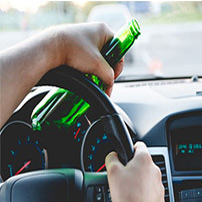 Sobriety checkpoints are stations along the roadway where law enforcement officials observe passing drivers for signs of impairment or intoxication. Though sobriety checkpoints have come up against strong legal opposition, they were ruled consistent with the Fourth Amendment of the Constitution in a 1990 United States Supreme Court Case.
Sobriety checkpoints are stations along the roadway where law enforcement officials observe passing drivers for signs of impairment or intoxication. Though sobriety checkpoints have come up against strong legal opposition, they were ruled consistent with the Fourth Amendment of the Constitution in a 1990 United States Supreme Court Case.
A majority of states across the country find sobriety checkpoints to be constitutional and conduct them on a regular basis. The remaining states find them to be either illegal or unconstitutional, prohibiting them along their roadways. New Jersey is one state that opts to conduct regular sobriety checkpoints.
Most DUI checks take place during popular holidays that are often associated with parties and drinking, like the Fourth of July or New Year’s Eve. During sobriety checks, officers create roadblocks, stopping random vehicles to determine if the driver might be intoxicated. Drivers in states that conduct sobriety stops should know their rights should they encounter one on the highway.
Protocol for Sobriety Checkpoints
Police officers are required by law to follow certain procedures when conducting sobriety checkpoints. Law enforcement supervisors must choose the time and location of checkpoints. Notifying the public of an upcoming checkpoint is the first step in deterring a DUI in New Jersey.
Drivers must be assessed on a mathematical basis only, every fifth car for example. This prevents officers from pulling over cars subjectively. Checkpoints should be visible to all motorists, with lights, sirens, and uniformed officers easily seen from the roadway.
Drivers who display no signs of intoxication should be free to go. Drivers who demonstrate possible signs of impairment should be transported to a designated area for further field sobriety tests. If probable cause is found, further investigation can take place with the possibility of arrest.
Although some drivers may feel that sobriety checkpoints are invasive, they have proven to be effective. The U.S. Centers for Disease Control reports that checkpoints reduce DUI crashes by around 20 percent. However, despite their effectiveness, sobriety checkpoints have been abused in the past.
Cherry Hill DUI Lawyers at Gigliotti Law Group Advocate for Those Facing a DWI in New Jersey
Sobriety checkpoints have a role in keeping drivers safe. However, when police officers do not follow protocol in conducting checkpoints, your rights may be violated. If you have been charged with a DUI in New Jersey, contact the experienced Cherry Hill DUI lawyers at Gigliotti Law Group to help you achieve the best possible outcome. We serve clients in Camden County, Burlington County, Gloucester County, Mercer County, and throughout New Jersey. Call our offices today at 844–742–7591 or contact us online to discuss your case.

